Bolivia's Opposition Stages Strike, Morales Decries 'Coup'
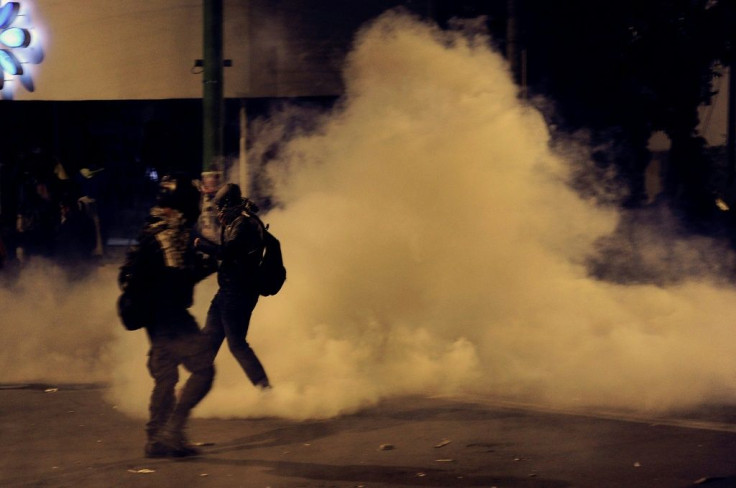
Bolivia's opposition launched a general strike Wednesday amid protests and disturbances over disputed election results that pointed to another term for President Evo Morales, who likened the unrest to a right-wing coup.
Speaking to reporters, Morales also said he will take measures to "defend" democracy and is confident he will be declared the outright winner of Sunday's election -- with no need for a runoff.
His opposition rival, Carlos Mesa, urged his supporters to step up protests against what he said was an effort by the three-term Morales -- Bolivia's first indigenous president -- to steal the election.
Mesa said his supporters should proceed with "permanent mobilization" on the streets until the country's electoral authority "recognizes that the second round must take place."
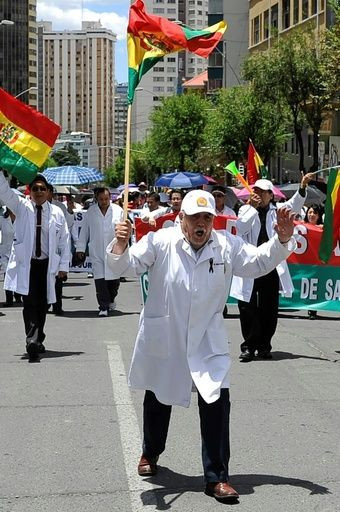
Clashes broke out between rival demonstrators Wednesday in the eastern city of Santa Cruz, the country's largest and an opposition bastion.
Offices in the city housing Bolivia's electoral authority were set on fire overnight, and security forces clashed with demonstrators in La Paz and elsewhere.
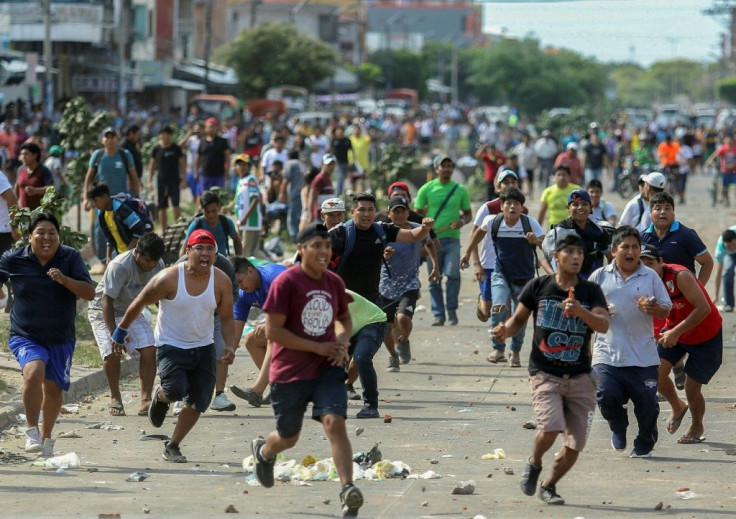
Morales, a former coca farmer and Latin America's longest serving leader, is seeking a fourth straight term.
Partial results released Sunday indicated Morales would face off in a second round with Mesa, but the electoral court on Monday released stunning new results that suddenly raised prospects of an outright Morales victory.
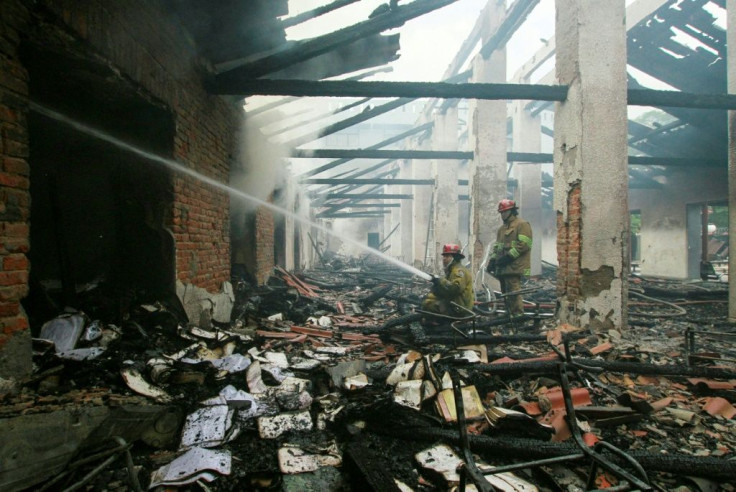
That drew opposition complaints of fraud and triggered rioting in some cities.
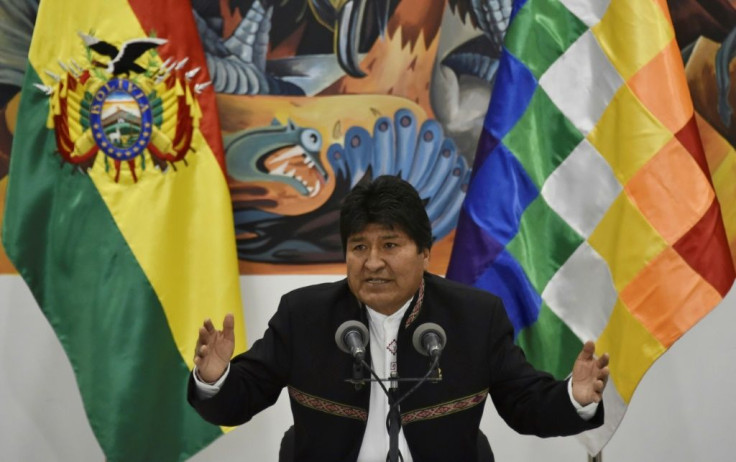
"A coup is under way. I want the people of Bolivia to know," Morales said in his first public remarks since the vote, referring to the strike and the violent anti-government protests.
"Until now, humbly, we have put up with it in order to avoid violence and we have not entered into confrontation."
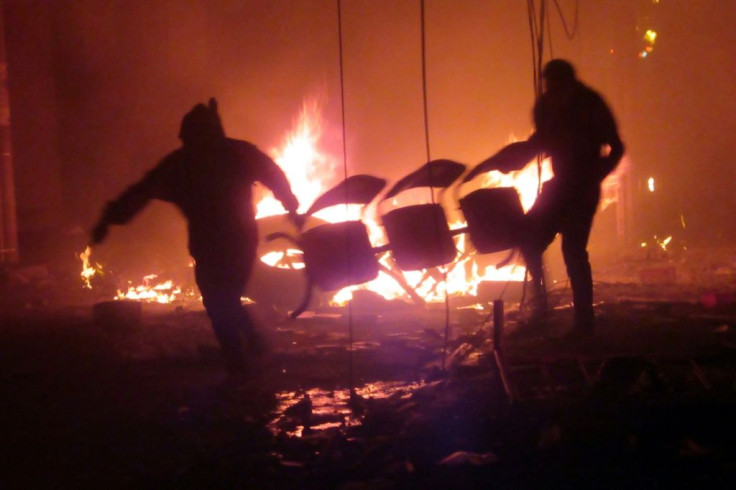
'Serious consequences'
Morales drew support from his leftist ally, Venezuelan President Nicolas Maduro, who decried "a predictable coup that, I can say, was defeated. The Bolivian people will defeat violence."
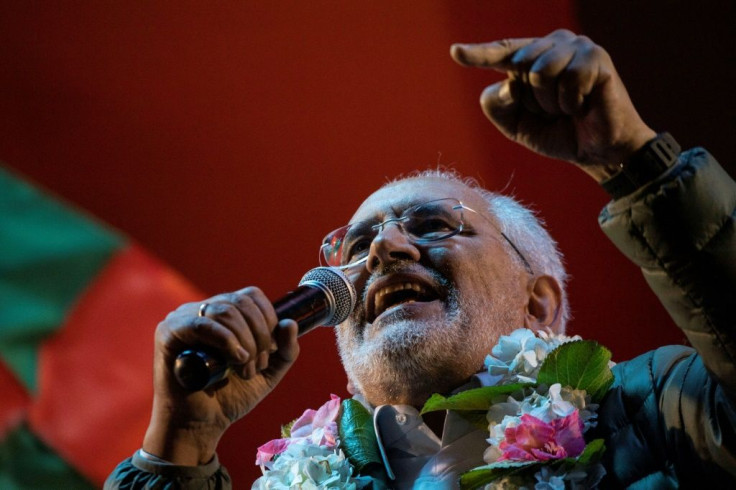
After the release of the controversial election results, mobs torched electoral offices in Sucre and Potosi, while rival supporters clashed in La Paz.
Monitors from the Organization of American States said they, too, had seen a "drastic and hard to explain change" in the trend of the initial results.
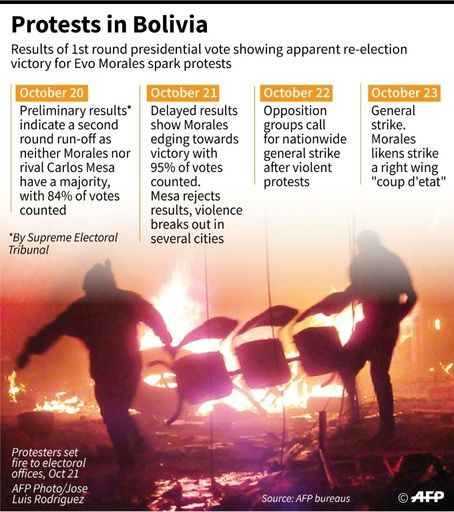
The OAS held an extraordinary meeting on Bolivia at its Washington headquarters and said "the better option" to ease the crisis would be to hold a second round run-off.
"Due to the context and the problems evidenced in this electoral process, convening a second round continues to be a better option," said the head of the OAS election monitoring department, Gerardo Icaza.
Michael Kozak, the top US diplomat for Latin America, urged the electoral authorities "to respect the votes that were cast by the Bolivian people."
"They should do that. If they don't, we are making clear there are going to be serious consequences in their relationships throughout the region," Kozak said.
Pro-Morales protests
As of Wednesday, with about 97 percent of the vote counted, Morales had 46.03 percent compared to 37.35 percent for Mesa -- just shy of the 10-point lead necessary to avoid a runoff, according to the commission.
The general strike went into effect at midnight and will "continue until democracy and the will of the citizens are respected," according to civic organizations that called for the stoppage.
Meanwhile, an umbrella organization of pro-Morales labor and farmers' unions, CONALCAM, called on its members to defend the official results.
"We will go out on the streets and on the roads to firmly defend democracy and the votes of Bolivians," said the leader of the main union, Juan Carlos Guarachi, after a meeting with Morales.
Mesa, who served as president from 2001 to 2005, accused Morales of colluding with electoral authorities to tweak results and avoid a run-off.
Spain, Argentina, Brazil and Colombia also voiced concern.
Controversial reelection bid
Morales is seeking another term amid controversy.
He obtained Constitutional Court permission in 2017 to run again despite a 2016 referendum in which Bolivians said no to letting him do so.
The onetime leftist union leader has led the poor but resource-rich Latin American country for the past 13 years, though his popularity has waned amid allegations of corruption and authoritarianism.
A new mandate would keep him in power until 2025.
Morales points to a decade of economic stability and considerable industrialization as his achievements, while insisting he has brought "dignity" to Bolivia's indigenous population, the largest in Latin America.
© Copyright AFP 2024. All rights reserved.




















